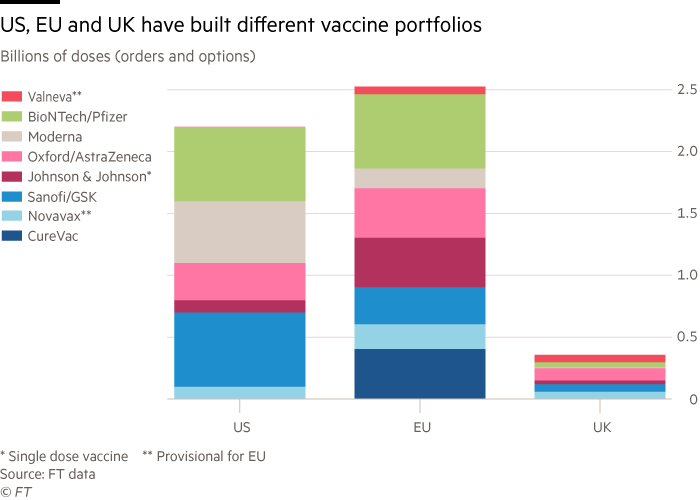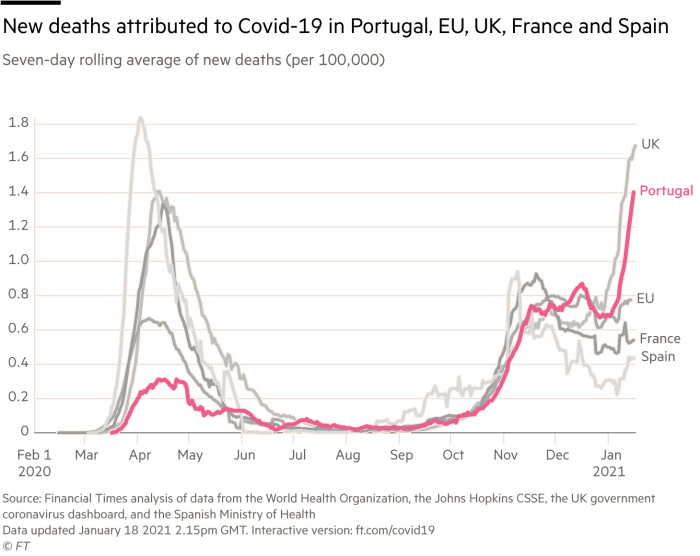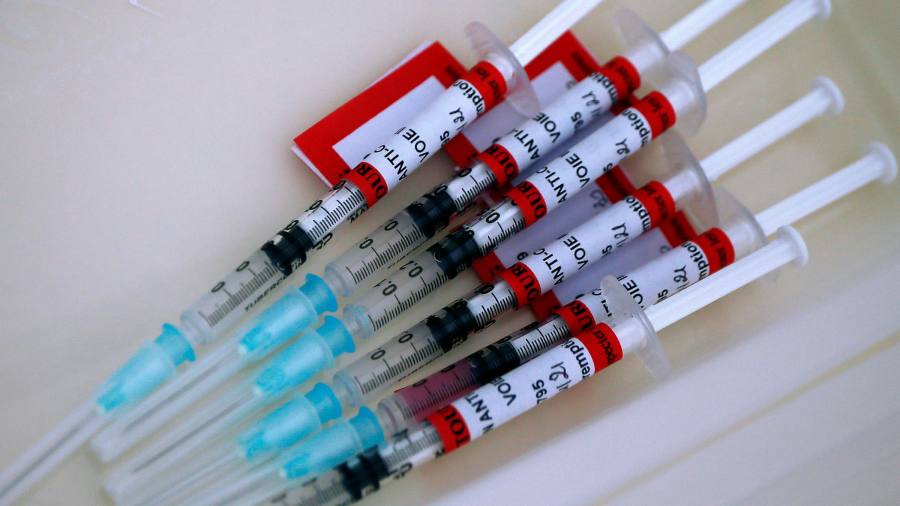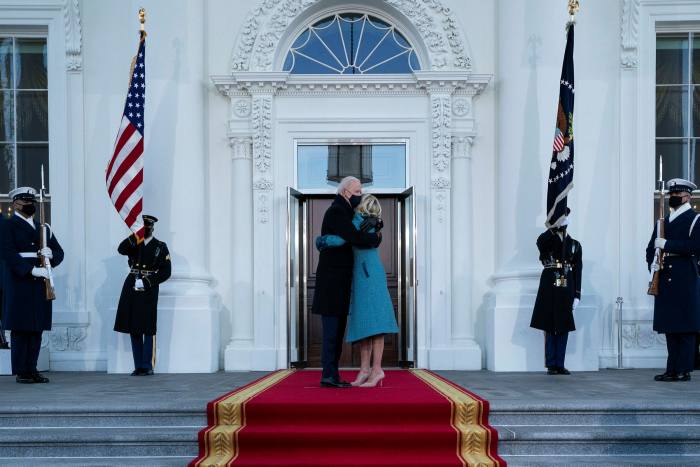The EU’s efforts to combat Covid-19 have reached a perilous point, with pressure mounting on both the bloc’s offensive and defensive strategies as its leaders prepared for talks on Thursday.
Countries are grappling with squeezed vaccine supplies needed to clamp down on the virus while scrambling to protect themselves against apparently more contagious coronavirus variants — including one identified in the UK. “We are at a critical stage,” warned one EU official.
It is a measure of the troubling degree of the latest developments that the fight against the pandemic will dominate Thursday’s online gathering of heads of state and government. Charles Michel, European Council president, has asked leaders to share “best practices” for how they are combating coronavirus and implementing vaccination programmes.
The new virus strains have put the bloc on high alert and revived debate about whether to tighten travel restrictions. While there is widespread reluctance to close borders within the 31-country free movement zone comprising the EU27, Norway, Switzerland, Liechtenstein and Iceland, member states are reviewing options to toughen quarantines and testing, border checks and access from third countries.
The telesummit will also focus on disruptions to vaccine rollouts and deliveries, notably Pfizer’s surprise announcement on Friday that supplies of the pioneering jab it developed with Germany’s BioNTech would be cut temporarily this week. The company insisted the shortfall will be made up soon and is happening to allow expanded production later in the year.

At the same time, EU member states and the European Commission are locked in talks with pharmaceutical companies over how to deal with a separate reduction in the number of vials they deliver to cover their orders. This follows a ruling this month by the bloc’s medical regulator that six doses can be extracted from each capsule rather than five, after health professionals found there was often vaccine left over. But husbanding the half dozen shots requires a special kind of syringe, which the companies and their customers are now haggling over how to source.
Another contentious point will be a proposal by Greece to create a vaccine passport to ease travel around the EU. While Athens thinks the document might help it avert a washout summer tourism season, the idea has triggered anxiety in many other countries because it could divide privileged mobile vaccine “haves” from stymied “have-nots”.
It is also not clear yet whether people who have received the vaccine might still be Covid-19 contagious, casting doubt on how helpful any certificate on its own would be.
The idea is to start discussing common standards for the passport on Thursday, but officials stress that debate is at an early stage — and warn that there are other, more pressing topics on the increasingly forbidding agenda.
Chart du jour: Portugal’s unwanted record

Portugal has suffered surging infection rates since the start of the year, recording the highest number of cases per 100,000 people in the world last week. It has led health experts to criticise the socialist government for easing lockdown measures too far during the Christmas period. (FT)
Around Europe
-
Joe Biden’s presidency has been welcomed by Europe’s leaders including Ursula von der Leyen, who vowed to breathe new life into EU-US relations on inauguration day. Here’s a rundown of the main areas of tension and co-operation in the transatlantic relationship. Mr Biden, the oldest president in US history, did not mention Europe in his inauguration speech but did immediately rejoin the Paris climate agreement, which will be roundly welcomed by Brussels. Not all the bloc’s leaders are enthused at the change in administration, including Hungary’s Trump-supporting prime minister Viktor Orban.
-
Italy’s government is considering taking legal action against Pfizer after the pharmaceutical company said it would not be able to deliver as many vaccine vials as planned to European governments. Health officials across the EU have warned the change in delivery volumes has left them unable to complete vaccination schedules for those first inoculated in December and January. (Reuters/FT)
-
Tagesspiegel reports on how new CDU party chair Armin Laschet is under pressure to clarify the party’s line on whether to remove Hungary’s Fidesz from the conservative European People’s party. The CDU has not yet supported calls from other EPP members to kick out Viktor Orban’s party. The CER’s latest podcast discusses Mr Laschet’s leadership and the CDU’s prospects in Germany’s federal elections in September.
-
The French government has kickstarted the process of holding a referendum on whether to add climate protection to the country’s constitution. The draft text was presented to the cabinet on Wednesday and will need to be approved by both houses of parliament before any referendum can take place. Le Monde reports on the dilemma facing the French right in backing the referendum and the potential risk to Emmanuel Macron in organising and holding a plebiscite during the pandemic and months before presidential elections in 2022.
Coming up today
The European Central Bank meets for its latest governing council this afternoon, when no significant monetary policy action is expected.
EU leaders dial in for a virtual summit to talk Covid-19 co-ordination from 18.00 (CET).
michael.peel@ft.com; @Mikepeeljourno
sam.fleming@ft.com; @Sam1Fleming


